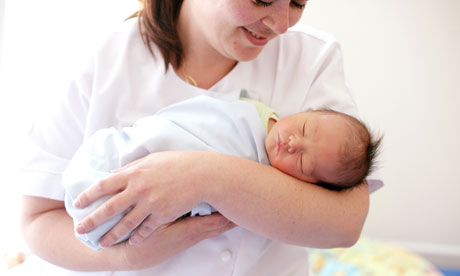
There are, said Janet Fraser this week, no risk-free options where birth is concerned. She chose the way of giving birth "with which I was most comfortable".
But few today will understand her choice – still less the fact that she apparently continues to defend it. Fraser was giving evidence at the inquest into the death of her baby daughter Roisin, whose "free birth" went tragically wrong. And this week a coroner, giving judgment in the case, said it was because Fraser opted to deliver her child without medical assistance that Roisin died – the umbilical cord, he said, had become tangled round her neck. Fraser's partner and a friend, who were with her, couldn't deal with it, and the baby stopped breathing as a result.
Fraser's pro-free birth website, Joyous Birth, has followers around the world. Will the circumstances of her terrible loss put an end to a phenomenon that, while it totally mystifies the vast majority of people, has a tiny but dedicated band of advocates in countries including the UK and US, as well as Fraser's native Australia? No one knows how many women opt to give birth without a midwife or specialist help, but there are perhaps a handful such deliveries each year in this country, and maybe a few hundred internationally (not including the vast numbers around the world, of course, for whom having a midwife in attendance simply isn't an option).
Many people will want to condemn Fraser for her actions: she will be branded selfish, irresponsible, even insane. But let's be fair: no woman, having carried a child in her belly for nine months, wants that child to die or be injured in the process of emerging into the outside world. The reason Fraser chose to give birth without a midwife there, or even on call, and the reason most freebirthers make that choice, is that they have had a devastating experience of intervention when giving birth on a previous occasion. Fraser's own story is typical: she had her first baby in 2003, the child was born by emergency caesarean, and to Fraser it felt like "birth rape". Second time around, desperate to avoid another caesarean, she took the path she thought would be least likely to lead to surgery – a free birth. That time, all was fine. But when she tried the same thing again with Roisin, things were very different.
I have some insight into how it feels to be in Fraser's situation, because I, too, went through a psychologically devastating emergency caesarean with my first baby, and I too was terrified of having anything like that happen to me ever again. I completely understand Fraser's insistence that no way of birth is ever free of risk – disasters happen on fully staffed obstetric wards, often owing to procedural failures that are entirely outside the control of the labouring woman and her partner. And I believe, as Fraser believes, that what childbirth does to a mother's psychological state is a crucial marker of how well the birth has gone, and that the widely held adage "All that matters is that the baby is OK" is a naive and inadequate way to benchmark a birth (and in fact, a growing number of studies support this very point, showing how crucial a mother's psychological health is to a child's early months and years and, beyond that, to the child's entire future).
After my traumatic caesarean, I went on to have two babies without surgery, and these were happy events, but my most complete experience of birth was with my fourth child, whom I delivered without medical help. I was planning a home birth, but I dallied before calling the midwife: freebirthers call this "oopsing", as in "Oops, I waited too long to call the midwife, and the baby arrived before she did." Pushing my baby out by myself was, quite simply, the most empowering moment of my life – and I'm convinced it not only paved the way to a happy future with her, but also helped to heal the scars from the first, incredibly difficult, delivery. I emerged – as Janet Fraser hoped to emerge – as a happier, healthier woman, more able to cope with the demands of raising children.
Women like Fraser, who seem to some to be mad, obstinate and deaf to sensible medical advice, are quite probably women who have simply experienced the way a badly handled experience of childbirth can pull the rug out from under your capacity to mother, and you will then do whatever you believe it takes to reverse that. All Fraser wanted, I am certain, was to be the best mother she could possibly be to her children. What she needed – what I needed too – was a system that understood how much it matters to address a mother's psychological state as well as a child's physical safety: Roisin's death is much more to do with that system's failure than it is to do with any misguidedness on her mother's part.

